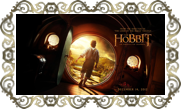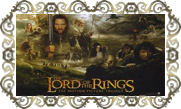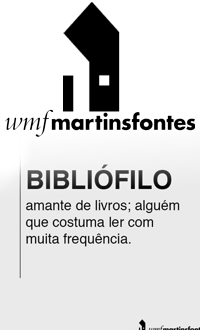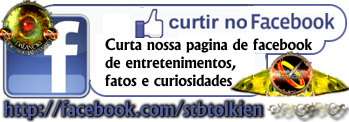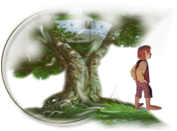

| Asbury University English Professor Devin Brown signed a contract with Abingdon Press to write a book with the title The Christian World of The Hobbit. Brown's book is planned to come out in Fall 2012 in advance of Part I of director Peter Jackson's film adaptation of The Hobbit and then will be re-released in 2013 to coincide with Part II. J.R.R. Tolkien’s writings are fundamentally but not overtly Christian. As Tolkien himself explained, “The religious element is absorbed into the story.” In his beloved story The Hobbit, Tolkien takes the reader into a world unlike any other, yet so much seems familiar. From Bilbo to the elven, glimpses of the spiritual are seen. Previous guides to Tolkien’s work have often made one of two wrong turns: they have either entirely overlooked the Christian elements of The Hobbit or claimed to find “Christian” elements everywhere, going far beyond the fundamental aspects that have been absorbed into the story. The Christian World of The Hobbit will serve as a balanced guide for readers who want to uncover the essential Christian aspects that lie at the center of the classic book. Here follows an interview with the author Devin Brown about his upcoming book The Christian World of The Hobbit. |
Interview with Devin Brown on his book The Christian World of The Hobbit
Brown Devin is a Lilly Scholar and a Professor of English at Asbury University where he teaches a class on Lewis and Tolkien. He has spoken at Lewis and Tolkien conferences in the UK and the U.S. Devin earned a PhD at the University of South Carolina and currently lives in Lexington, Kentucky.
Brown has published numerous essays and scholarly articles on Lewis and Tolkien, who were not only contemporaries, but friends. His Lewis books include Inside Narnia: A Guide to Exploring The Lion, the Witch and the Wardrobe(2005), Inside Prince Caspian: A Guide to Exploring the Return to Narnia(2008) and Inside the Voyage of the Dawn Treader: A Guide to Exploring the Journey beyond Narnia(2010). It is a big honor to release the following interview.
TL: Can you tell us a little about yourself?
DB: My wife and I both grew up in the suburbs of Chicago. Along with our 15-pound cat, Mr. Fluff, we now live in the beautiful city of Lexington, Kentucky—where I am an English Professor at Asbury University. I am not only a Lewis and Tolkien scholar, I am a huge fan of both authors. I have written 3 books about Lewis and Narnia. This is my first book about Tolkien.
I am not as old as Tolkien was when The Fellowship of the Ring was finally published, but I am to getting up there. Like Tolkien, I am very familiar with what he called the “everlasting weariness” of grading exams. Unlike Tolkien, I have never come upon a blank page in an examination booklet where I was inspired to write the first line of what would become an international classic.
TL: What did you like to read when you were a child?
DB: The neighborhood I grew up in was not very literary and certainly not very wealthy. On Saturdays (after our dreaded piano lessons) my mom would take my two brothers and me to our public library where library policy limited us to five books at a time. (I doubt there would be a limit on reading today.) I read the normal books young boys like—mystery, adventure, fantasy, biography. Even back then I had a particular fondness for British writers and for writing that had a spiritual or moral dimension.
TL: When did you read The Hobbit for the first time and do you still recall this moment?
DB: Looking back on it, my first experience with Tolkien may seem rather amusing. One week when I was around eleven or twelve, one of those books that I checked out from the library was a book I had never seen before or heard anything about titled The Fellowship of the Ring. As everyone knows, Tolkien’s narrator begins the Prologue by assuming a rhetorical stance which makes it sound very much as if everything he is describing is real and actually happened. I had never read a book like this before, and for the first twenty pages or so (until a wizard named Gandalf showed up), I thought that it was a true story and that there really were people called hobbits.
It was only after finishing The Two Towers and The Return of the King that I discovered there was an earlier story called The Hobbit. As soon as I learned this, I immediately checked it out of the library and read it as well—devoured it you might say. And Tolkien became my favorite author. As a young person, I tried writing some (very bad) Tolkien-style poetry.
TL: How did you first get interested in the Inklings?
DB: Unlike many young people today, I did not grow up knowing there was a group called the Inklings. While I discovered Tolkien when I was in middle school, I did know who C. S. Lewis was until I was around sixteen. My older brother came home from college and threw a book on my bed and said I should read it. The book was The Lion, the Witch and the Wardrobe. I quickly discovered there were six other Narnia books, and after that a Space Trilogy, and after that The Screwtape Letters, and more after that.
At this point, I had two favorite authors, but had no idea that they were connected in any way. Then somehow, this was back before the Internet, I heard about the Inklings and discovered my two favorite authors had been close friends and members of the same reading and writing group. I was astonished and thought this was unbelievably cool.
TL: I'd like to talk about your book, The Christian World of the Hobbit. What prompted you to write the book?
DB: As Fleming Rutledge has rightly pointed out, on the surface Middle-earth is “a curiously nonreligious world.” A careful look reveals practically none of the elements we typically associate with religion. The word “God” is never mentioned directly in either The Hobbit or The Lord of the Rings. Both stories are set in a time that is pre-Christian and even pre-Old Testament. Thus readers find no cathedrals, temples, or churches; no priests, ministers, or clergy; no Bibles; and no liturgy. Save for those who gave devotion to Sauron in the Dark Years and Gollum who bows and offers homage to Shelob, there is no mention of worship. Except for two vague incidents, there are no prayers. In Appendix A at the end of The Return of the King, readers find a reference to the “One” who placed the Valar in guardianship over Middle-earth, and, in Arwen’s farewell words to Aragorn, a reference to the “One” who gave the gift of death to men.
And yet, in an interview Tolkien told the American scholar Clyde Kilby, “I am a Christian and of course what I write will be from that essential viewpoint.”
Tolkien’s writings are in their essence, at their core, Christian works, but only at their core, not on the surface. The Christian viewpoint, and Tolkien’s own words tells us that he has included one, has been absorbed, has been embedded into his stories and so, except for a few very minor instances, cannot be seen on the surface.
Tolkien expanded on this idea in a later letter dated October 25, 1958 where he responded to a number of questions Deborah Webster had sent him. There the author tells her, “I am a Christian” and then adds in parentheses “which can be deduced from my stories.” Here the word deduced is key, making it clear that the Christian element in Tolkien’s stories is present but is not directly evident and must be deduced.
I was prompted to write The Christian World of The Hobbit to show how Tolkien’s faith impacted his fiction—primarily The Hobbit but also as the story continues in The Lord of the Rings. I hoped to show how Tolkien’s writing is infused with a fundamentally Christian point of view.
TL: What special qualifications do you have for making this study? What makes you different from your colleagues?
DB: I have spoken at Tolkien conferences in the UK and the U.S. I have published a variety of essays on Tolkien, of various types. But these facts would be true for most Tolkien scholars.
I have taught a class on Tolkien for the past 12 years, allowing me to read and reread his works over and over and to explore them with students time and time again. In addition, I am a literature professor as Tolkien was, and I am also a Christian as he was. Without this last qualification, without sharing his most basic perspectives on life, I am not sure I would have been able to write this book.
What else? Since I can remember, my life has been shaped by Tolkien’s stories. This is something I believe I share in common with many Tolkien fans who will read my book.
TL: How does this book compare to your previous books on C.S. Lewis?
DB: In my books on Lewis—Inside Narnia, Inside Prince Caspian, and Inside the Voyage of the Dawn Treader—I went through each book, chapter by chapter. The Christian World of The Hobbit is thematic. In it, I examine the underlying Providence in the story, its great sense of purpose, and the general moral landscape—all elements which have a distinctly Christian foundation.
TL: I don't want to offend you, but is it not so that all your books are tied to the release of a movie, is this done to reach a larger crowd or just to jump on the money train?
DB: That’s a fair question, and I am glad to have the chance to set the record straight. Despite what people may think, there is no ‘money train’ for someone who writes a book about a book—as I do. I tell my students who think they want to be writers that when my first book check came, it almost paid for my three teeth that needed to be fixed that week at the dentist. If I added up the hours it takes to research, write, and edit my books, I would actually make more per hour if I worked at McDonald’s. Of course, the work would not be nearly as interesting.
The fact that there have been major motion pictures about the Chronicles of Narnia and now two films about The Hobbit makes it possible for a publisher to come out with a book. Anyone who has been writing knows that while books by Lewis and Tolkien sell very well, books about Lewis and Tolkien have very moderate sales.
TL: What is the biggest difference between your book and the many existing books that show the Christian influences in Tolkien's works?
DB: I am not sure I would say there are “many” books that explore the impact that Tolkien’s faith had on his fiction. I own all the good ones, and they fit very neatly on a small part of one shelf. Of these few really good books that show the Christian influences in Tolkien’s writing, none focuses on The Hobbit. I hope to change that with my book.
When it comes to exploring the Christian elements in Tolkien’s works, there are two equal and opposite errors into which scholars can sometimes fall. One is to totally ignore the Christian aspects in Tolkien’s stories. The other is to find Christian aspects everywhere, in places the author has not put them. As Clyde Kilby, one of the first generation of Tolkien scholars, has observed, “No real lover of Tolkien’s fiction would want it turned into sermons, no matter how cleverly preached.”
TL: In my point of view, The Hobbit is nothing more then a children’s book, why try to find Christian elements inside this book?
DB: On October 2, 1937 readers opened The Times Literary Supplement to find a review of a remarkable new book.
“This is a children’s book only in the sense that the first of many readings can be undertaken in the nursery,” the reviewer explained. He also made the point that the book “will be funniest to its youngest readers, and only years later, at a tenth or a twentieth reading, will they begin to realize what deft scholarship and profound reflection have gone to make everything in it so ripe, so friendly, and in its own way so true.”
The reviewer was C. S. Lewis. The book was The Hobbit. The Christian aspects fundamental to The Hobbit are certainly part of what was behind Lewis’s statement about the “profound reflection” that can be found in the story as well for his declaration that the work is “so true.”
I would agree with you that The Hobbit is children’s book, but would disagree when you say it is nothing more than this. In his famous lecture, “On Fairy-stories” Tolkien pointed out that it is only in recent literary history that this type of story has been labeled for children only and consequently “relegated to the nursery.” Any fairy-story which is worth reading at all, he claims, will be worthy to be read by adults as well.
Adults, of course, will get more out of the same story read in their childhood—a point with which readers of The Hobbit and The Lord of the Rings would heartily agree.
TL: In the books of Lewis there are clear elements of religion shining through, this is absent in The Hobbit and The Lord of the Rings, how do you compare these two authors?
DB: It was against Tolkien’s nature to be too explicit, to write too directly, about the things he felt deepest about—and this would especially include matters of faith. In fact, this was one of the aspects he disliked about much of C. S. Lewis’s writing. As Michael Drout observes the “overtly Christian message” of Lewis’s Narnia books was a major point of contention between the two authors. Tolkien thought Lewis, a layman, went too far in writing about issues of faith, issues which should be reserved for the clergy. Alan Jacobs puts it this way: “What Lewis took upon himself was, in Tolkien’s judgment, none of Lewis’s business.”
I would disagree with your statement that the religious element is “absent” in Tolkien’s works. If we call the fiction of Camus and Sartre “Existentialist” because while never overtly stating it, their stories clearly present an Existentialist point of view, I would argue that we should also label Tolkien’s fiction as Christian because of the underlying Christian assumptions that it is built upon.
One explanation of the way Christianity is present in Tolkien’s works can be found in a letter Tolkien received from a man who wrote to tell him, “You … create a world in which some sort of faith seems to be everywhere without a visible source, like light from an invisible lamp.” Tolkien once said that the Christian element was absorbed into his stories. Steve Walker has put it a slightly different way, writing that Tolkien’s fiction is “not overtly religious, not religious in appearances, but religious in its bones.” Another way of putting it might be to say that the Christian element has been infused into the story. Tolkien’s stories are permeated with his beliefs.
The Hobbit is both a children’s tale and something more. The providence, purpose, and morality in The Hobbit go against the grain of the modern mindset. In The Hobbit, Tolkien brings his readers into a world filled with meaning and purpose where they find clear contrasts between right and wrong. The same audience who might scoff at the Christian worldview in a different context, find themselves embracing it in The Hobbit. TL: After uncovering the essential Christian aspects that you find lie in this book did you unearth other bones that belong in the soup? What I want to say, next to Christian elements there must be elements that make this book a global bestseller - read, understood and loved by people of all religions, tastes and qualities... next to Christian elements what did Tolkien put into The Hobbit to make it so accessible.
DB: I am not sure that the accessibility of The Hobbit is its most important aspect. Surely there are many works we could name which as accessible which do not share its cherished status.
While it is clear that the goal of some writers of fantasy is simply to entertain, this was not Tolkien’s primary goal. The main purpose of Tolkien’s stories of imaginary beings in an imaginary world is to provide a better understanding of our world and the real beings who inhabit it. In a review for The New York Times, W. H. Auden claims that Tolkien “holds up the mirror to the only nature we know, our own.” Stratford Caldecott takes a similar position on Tolkien’s ultimate goal, claiming: “He may have been writing fiction, but he was telling the truth about the world as it revealed itself to him.” I would argue that one reason Tolkien’s stories—both The Hobbit and The Lord of the Rings—are so widely popular today is because they are so deeply needed.
TL: What is your hope for your readers?
DB: I believe that any serious Tolkien fan—Christian or not—would be interested in knowing about the role that Tolkien’s faith played in his fiction. My hope is that my book will help readers understand Tolkien better and will thus make their reading of Tolkien’s work even more interesting and more enjoyable.
TL: In a sentence or two, why should people buy this book? What makes it stand out?
DB: Because we scholars sometimes have a way of making authors say what we what them to say, Tolkien fans are right to be initially skeptical of anyone who writes a book claiming to provide insight about Tolkien’s fiction. In my book I work very hard to keep Tolkien center stage and let him speak for himself—through his letters and essays—and above all to let him speak through his stories.
TL: When you're not working, what are your favorite ways to relax and have fun?
DB: Besides reading, you mean? I am a big fan of what we in the states call Public Broadcasting and never miss an episode of Masterpiece Theater or Masterpiece Mystery. Like Lewis, I enjoy walking just for the fun of it. To celebrate finishing my first book, I hiked The Cotswold Way, a 100 mile national trail that ends in Bath. I am a major cat lover. When my wife asks me who I love more—her or Mr. Fluff—I tell her it depends on the day. I enjoy travelling as long as it involves going somewhere in England.
TL: Which of the Inklings is your favorite and why?
DB: While there are some people who like Lewis more or like Tolkien more, I am not one of them. I really like them both. I like them for some of the same reasons and for different reasons.
TL: One final question, do you look forward to The Hobbit movies?
Absolutely, I can hardly wait until December when Part I will be released!
I know that some Tolkien fans cannot abide the film adaptations of that have been made of his works because of the changes that are made as the books go from page to screen. While I understand and share their reverence and their preference for Tolkien’s originals, at the same time I have thoroughly enjoyed all of the Peter Jackson movies set in Middle-earth.
At the very least, it can be argued that the films have encouraged thousands and thousands of people to pick up the books and to read them for themselves. And that, by itself, is an amazing and wonderful thing, wouldn’t you say?
| Title: The Christian World of the HobbitAuthor: Devin BrownPublisher: Abingdon PressPublication Date: October 2012Type: paperback, 192 pages ISBN-10: 142674949XISBN-13: 978-1426749490 |
Spread the news about this J.R.R. Tolkien article:
